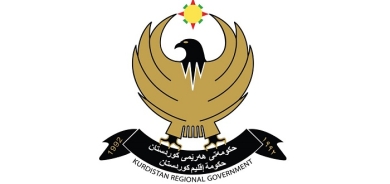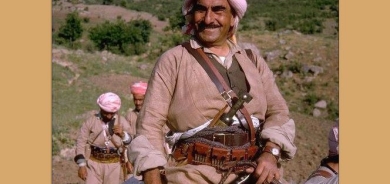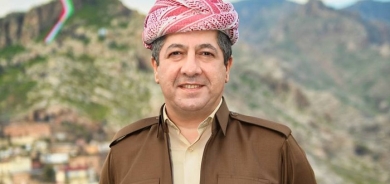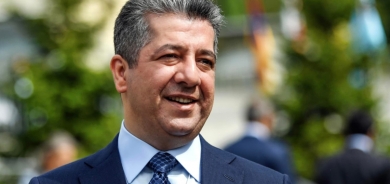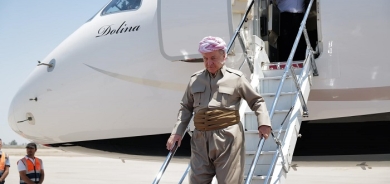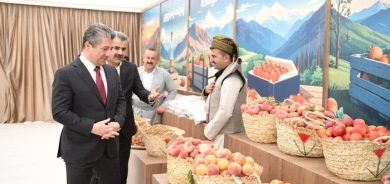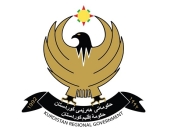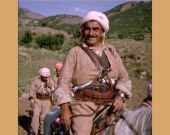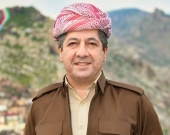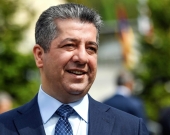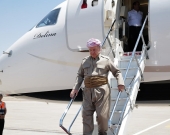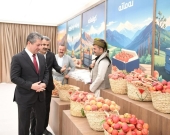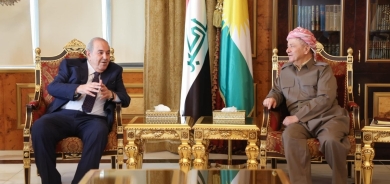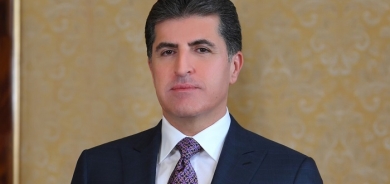The Role and Effect of the President in creating the state potentialities and institution's infrastructure

"The process of nation-building is the process of calling into the existence the state's potentialities and institutions infrastructure from zero. Montesquieu about this says: "when societies come into being, it is the leaders who establish and shape the institutions. Later on, this process will change into determine the leaders." Since in the developing countries the leaders emerge before the maturing of political institutions, the shape of institutional foundations will reflect the legal system of the country. But in the developed countries, because the institutions set limitations for the leader, the limitation of power is seen as a legal system. Therefore, the process of nation-building- be it under any circumstances- is a tough mission. True that some countries have been successful in this stage, but many countries have also failed, or have fallen apart. This process is the process of organization, success, achievement and foundation of a new process. Regarding this, Machiavelli has said: "Nothing is as difficult as organization; nothing is more as irksome as suspicion and nervousness for success; nothing is more dangerous than achieving something; but more than all of this, nothing is tougher than to build a new system."
This tells us that the process of nation-building is a difficult, long-term process and requires a large labor. And it is a process that on the level of economy and politics it is rebuilding the society as such that it will be able to provide its individuals with the daily needs. The success of this process on the level of long-term view and the potentiality of the nation to survive befalls upon the type and nature of the leader that makes this process successful since in this period the leader is important for achieving the goals and directing the nation for participating in the nation-building process. Therefore in this process that the nation is in the period of being rebuild again it will lose itself in the process if there is no potential, legitimate and logical leader for the future. It is the leader who during the crises and historical changes manipulates the process for the benefit of its people."
In 1991 when Massoud Barzani was then leader of the Kurdistan Front, he gave a speech in Koysenjaq, where he told all the Kurdistanis that election should be held and the gaps that the withdrawal of the central government has created should be lessened and steps should be taken towards the foundation of the state of law. Then the Kurdistan Region was as the following:
1- Because of the 1991 Uprising of the people of Kurdistan, no state institutions in the Kurdistan Region survived the anger of people.
2- Besides the three large centers of Kurdistan Region, Erbil, Suleymania and Duhok, most of the other towns were replaced and 4500 villages were destroyed by the Baathist regime. Thus a large portion of the population was living in the concentration camps.
3- The cities in the Region were lacking services, institutional infrastructure, factories and enterprises.
This means that Kurdistan Region of Iraq, unlike post-war and post-colonialism countries and even Third World countries, was the most weakest and the infrastructure of the country was not only damaged, rather the political, cultural and societal infrastructure was demolished. If the post-war and Third World countries are called underdeveloped countries, then Kurdistan can be even called Under Zero. From this point of view, if the global definition for nation-building be it "the creation of state potentialities and establishing the institutions from zero", then the nation-building process in Kurdistan started from the under zero level. Moreover, the special circumstances that Kurdistan Region of Iraq passed through since 1990, comparing to the rest of the world, has been a very unique and dangerous situation and has been under continual internal and foreign threats. For examples:
1- After the mass exodus of 1991 spring and the non-existence of a resort to which citizens can flee to, this exodus was seen as causing human catastrophe where millions would resort to the neighboring countries and creating regional problems. As a result it was decided to establish a safe haven within the 36 parallel line in northern Iraq and be its people – and not a nation without entity- protected by the international community.
2- This safe haven which was initially called as "Provide Comfort" and later "No Fly Zone," according to all the available documents, was established to provide humanitarian assistance. There was no political aim behind its creation. But this move was viewed by the neighbors, Arabic and Muslim countries as the first initiative for the independence of Kurdistan and a threat on their own future. That is why we have noted that this region has been always under the local and foreign and even Iraqi threats.
3- Along the period 1991-2003, this region was allocated its budget through Baghdad. The Region was not given its opportunity to develop an economy where it can rely on itself, because the neighboring countries as well as the international community were not ready to make any economic or trade initiatives with the Kurdistan Regional Government. Moreover, the international embargoes imposed on Iraq, did also include the areas covering the Provide Comfort. And there was no any response to the embargo put on the Kurdistan Region by Baghdad's government. The Kurdistan Region's share of the Oil for Food Program of the United Nation was not handed over to the legitimate KRG institutions; rather, it was given to UN organizations.
4- Most unfortunately was the rise of several civil wars between the political parties of Kurdistan. The civil war between Kurdistan Democratic Party (KDP) and Patriotic Union of Kurdistan (PUK) was the most severe and with casualties.
Mentioning these points is not for only arguing that the nation-building process in Kurdistan had large obstacles and challenges on its way and the other nations had not. Rather, those problems and challenges that were on the way of the nation-building process in Iraqi Kurdistan were very different from those of other nations. The Kurdistan Region had to pass several phases to be in same position of its problems and challenges. If we look at the successful examples of East Asia, such Singapore, Taiwan and South Korea, we would observe that we are still not up to these circumstances that those countries started with. These differences are:
- The nation-building process in Singapore started in 1965, after the independence of Singapore from Malaysia. This new country was a federal region in Malaysia. The story of Singapore's success is recorded in "From the Third World to First World" by the former president of Singapore, Ali Kuan Yo. Singapore's success was only after its independence.
- Taiwan started its nation-building process only after claiming its independence from China after the success of Mao Tisi Tong in 1949. Taiwan did not only represent the people of Taiwan in the world, it also sat on the seat of China in the UN until 1971. The world new Taiwan as the Republic of China and not as the current China Republic. Thus, for about 22 year Taiwan had its nation-building phase. As for now, only in the official international documents it is considered as a non-independent country, but its internal system and its trade relations with the world is being conducted as a independent country.
- South Korea started its nation-building process (known as Simaoul) after 8 years from its independence and the end of war, launched by Park Chang. South Korea's process is seen as the most successful nation-building story in the whole world. Iraqi Kurdistan Region is yet to be at that level.
The important question here is: Does the situation and circumstances of the country ease the nation-building process? Although the answer for this question is not “Yes” or “No”, taking into consideration the circumstances of the country as that time and its president and leadership's effects are part of the answer. If we look back at the past twenty years of the nations, we will observe many crises in Somalia, Haiti, Cambodia, Bosnia, Kosovo, Ruanda, Liberia, Sierra Leon, Congo, Afghanistan and even Iraq. We have seen many leaders who failed in this process; a number of these countries still are plagued by the lack of leadership. This reveals the importance and effect of the leader in that period of the process. Without seriously taking into consideration the role of the leader in this process, any observation for this period would be incomplete. Regarding the third world countries, several nation-building process experts lay out another problem in front of the nation-building process: the third world countries were previously under the colonialism rule and the inheritance of their colonial powers to them is that those countries have been created without any consideration for its internal and foreign security. That is why its outcome has been the claim of independence by several new countries that have all the necessary requirements for statehood, but have weak state technique skills. Again, when comparing the Kurdistan Region's political situation with those of post-colonialism, it becomes obvious that we are different. Though this countries have weak statehood characteristics, but they every right of statehood, while the neighboring regional and Arab countries get annoyed every time when the issue of the independence of Kurdistan is aroused. They view this issue as a taboo and as an infringement on their rights.
Defining the different circumstances of the nation and the role of the leader in that sensitive period
The difference and rare case and dangerous situation of the Kurdistan Region reveals us the logical and skill difference of that leader which in this period is the elected president of Kurdistan Region, Mr. Massoud Barzani. Therefore, from here on and in evaluation of this sensitive period we will be explaining the role and effect of President Barzani. Meanwhile, we will be also mentioning the role of Mr. Jalal Talabani who has been a partner with President during this period's up and downs. However, since after toppling the Saddam regime Mr. Talabani, as the representative of Kurdistan Region, has been the president of Iraq and President Barzani has been elected as the President of Kurdistan Region, and there existed a strategic agreement between KDP and PUK for the unification of the Kurds internally, this report will mostly cover the role of President Barzani. The role of President Talabani in Iraq cannot be denied and we are all proud of.
For assessing the role of President Barzani, we need to lay out the context of Kurdistan Region conditions in the last twenty years, with special concentration on the post-2003 era. Once again, to consider the reconstruction process of South Korea as a success story, then as Professor Chong Nam Kim says in his book "Leaders for Nation-Building Periods: the Case of Korean President," that those challenges Korea faced have been different than those challenges facing the third world countries. "Since Korea was a partitioned, post-war country, and the war had devastation effects on the country, this partition created us problems of identity. In addition to that occupiers had brought us severe damages to our national identity. North Korea was viewing as an enemy, but the same country was viewed as a friend for the reunification. That is why, similar to all the third world countries, political and governmental instability had been one of the main trends in South Korea. The survival of South Korea was the main aim. This situation led to paying more importance to the army in South Korea. The coup plot and the success of a military general [Park Chang] to the top of power has been viewed as a normal situation."
Professor Chang, in his book sincerely says that since the situation in South Korea was a rare case the role of President Park has also been rare. What President Park has done for South Korea has been very different from what any leader has done for its nation. is being clarified by the example that when President Park started the Simoul process the annual income per capita in South Korea was $80 US, but in the 1980s this number reached 4000$ US. Nonetheless, the successful story of South Korea cannot be denied, but we can make assessment for our own President through the Korean experience.
The priorities of President Barzani's program in nation-building process
The nation-building process has not similar throughout the world. For instance, in the European countries, the nation-building process has begun with the nation-state and it has been a long process. However, in the Third World countries, this process has begun after the independence of the country. Moreover, the Third World countries situations have been during the information technology era, whereby it shortened the centuries-long process of Europe into a few decades process. In between these two examples, the case of Kurdistan Region is neither the European case nor like the other Third World countries. These special circumstances has made President Barzani's program to have an plan for nation-building process different than the other nations that would look stem from the fact that Iraqi Kurdistan Region still has not political entity in Iraq. Defending and the continuality the current experience in Kurdistan Region is as a principle for the political entity of the people of Kurdistan. This priority requires us to assess the President's programs:
1- The problem of the non-existence of a political entity for the Kurdish nation and the people of Kurdistan in Iraq.
2- The guarantee of preserving the current entity and defending it.
For making these two goals to succeed, President Barzani has assigned five priorities which he always mentions that he has accepted the position of presidency because of those five priorities which are the following:
First: Preventing another Kurdish civil war
By this, President Barzani means to prevent the explosion of any chance of civil war between the political parties in Iraqi Kurdistan, as well as between the Kurds of the other parts of Kurdistan, even if the other political forces negatively manipulate the Iraqi Kurdistan Region. For this purpose, he has met with all the forces in Kurdistan and has been able to solve the problems peacefully through dialogue. On the level of Kurdish forces of the other parts of Kurdistan, he has always insisted on solving their problems through negotiations and dialogues meanwhile avoiding creating problems for the Kurdistan Region. President Barzani, as a leader in a critical and historical period, has sensed the most dangerous threat against the nation, which are internal instability and the tensions between the political forces of Kurdistan. His current concentration is on how to find those factors that encourage instability and turning them to stability factors in the Kurdish society. According to him, internal stability has the following advantages:
1- It will strengthen the institutions and the political system.
2- Our society is in dire need for organization on the political, economical and societal level. This process won't succeed if the Kurds are internally not peaceful.
3- For having a high political participation of citizens in Iraqi Kurdistan Region, citizens should feel secure and protected and the rule of law exists, therefore all the political parties should cooperate with each other and assist the institutions in the Region.
4- Developing political skills so as to draft Kurdistani policies in order to solve the problems of the KRG with Baghdad.
Second: Making Kurdistan a state of institutions
This is the second priority of President Barzani in his nation-building program, which is to deal with the institutions in Kurdistan Region. The institutions in Kurdistan Region already are born and exist, but the priority of President Barzani is to make the whole country to be a country of institutions. When President Barzani in the early 1990s said that we need to an election and to fill in the gap of authority, he meant by developing the legitimate institutions the Kurdistan Region will own a democratic system image and will show the world a democratic foundation of Kurdistan Region, then today when he calls for the state of institutions he means that the institutions should function according to the rule of law umbrella and they should limit the powers of authority and reducing the daily routines in their institutions. As such, that the institutions will become an encouraging factor for the use and development of human capacity and prosperity of citizens in Kurdistan Region. By this, it becomes evident that his reform process that he has initiated will continue until Kurdistan becomes a state of institutions.
Third: Creating a position for Kurdistan up to its sacrifices and its struggle
This goal is referring to the challenge of the international community and those global powers that do not allow the Kurds to gain their own independency. It also shows the political will of the people of Kurdistan that it can within complex and difficult circumstances build the skeleton and institutions of a modern state, without having any foreign force assisting this nation. Therefore, when President Barzani says it is a very happy to see the opening of 20 countries consulate in Erbil which four of them are of the permanent UN Security Council members, it does not only means that the UN Security Council views Kurdistan as a non-dangerous entity for global peace and security, rather, it also views the Kurdistan Region as that democratic entity in the Middle East where it deserves to establish direct relations with. This success which has been achieved during the term of President Barzani has led to change in the level and approach of the contacts made with KRG. In addition, President Barzani is received as a de facto leader of a state. We saw recently him being received by the Austrian president in the Austrian Presidency House, similar to those of Eliza of France, White House, Saudi Arabian and Jordanian monarchies palaces and many more. We can conclude that under the presidency term of President Barzani, Kurdistan Region has become a de facto state; the world has been receiving its leader as the president of a de facto country.
Fourth: The restoration of the disputed areas from Sinjar to Khanaqin, including Kirkuk
This issue is not only about the return of several areas to the administration of Kurdistan Region, rather the insistence of President Barzani on this issue is based on the followings:
a- The return of the disputed areas means the Iraqis have abided by the Iraqi Constitution and implemented it.
b- Abiding by the Constitution means the holdfast of the new Iraqi identity as a federal and democratic state.
c- Admitting that the state structure is a federal and democratic one means to believe in dividing the powers within that federal state.
d- According to the Iraqi Constitution, dividing the power in the federal state means to expand the powers of the regions and limitation of the central government's powers.
e- Limiting the central government convenes that authoritarianism and one-man government and the dream of the return of dictatorships ends.
f- The end of authoritarianism means the start of a new volunteer life between the different communities and the birth of a common national identity that has never existed since the creation of Iraq.
And all of these together mean that after the return of the disputed areas to the administration of Kurdistan Region through legal and constitutional way all the injustices done against the Kurdistan Region will end and solving the problem of Iraqi Kurdistan will be a gate to solve the Kurdish problems in other parts of Kurdistan.
Fifth: Making efforts so as the Kurdish nation (not only Iraqi) to have its own language and writing
A unified Kurdish language should become the bridge for all the Kurds in the world, especially for those of the other parts of Kurdistan. Although regarding this issue President Barzani has said that it is not an easy task and maybe the current generation won't be able to see this unified language, he insisted that Kurdish language experts should work to achieve this mission.
This effort of the president for having a unified language and his words that it is not necessary that the current generation would see this unified language, gives the impression that President Barzani insists that the process of nation-building is a long-term task and the next generations have to continue this process. But, what is important in this critical phase, is that the steps are towards the right way and this process has already given signs of success within the framework of President Barzani's programs and vision for the future. This will not receive the people of Kurdistan's pride, but also appreciation from the nations around the world.
Dr. Christin Fabi, is lecturer of political science in University of Massachusetts and is an expert on Middle East and Balkan politics, ethnical problems and political identity. Regarding the first phase of the process of nation-building and its success, she told Gulan Media: "The initial phases of nation-building can be many decisive levels. Often in political science we consider this initial sensitive as an important time. We think that those major decisions that are made in this period can have long effects and outcomes, taking decades and even centuries. Types of those changes necessary for the development in the future of the nation are painful for those who are obliged to live with it. The leaders of that period should have charismatic and popular personalities so as to be able to achieve the majority's support and form an coalition. But, meanwhile, they need to be decisive and powerful in order to apply radical changes. History has revealed that the state-building process has been an major composer of the nation's identity. As we see in Europe and other parts of the world, it is impossible to preserve the idea of multiculturalism, it is even impossible to hold balance between them without having the historical dominant nation's story. At this point do charismatic leaders emerge? If they have sufficient popular support, then they can protect multiculturalism and all its positive sides while providing some sort of social organization force. Talking about the terminology, then the state-building process and nation-building can be viewed as two different processes. For me, these two processes are intertwined. For creating a national identity and sentiment you need the state's institutions which are related with education and law for disseminating national ideology and ideals. The national identities are not born in gaps; they are born through the constitutional institutions which often we consider them part of the modern nation-state. In most cases, the successful process of state-building is a condition for a successful process of nation-building- not oppositely which most of times is being assumed. "
Professor Mark Bisinger is lecturer of political science at Princeton University and is an expert on state-building, nationalism, the social movements, the Soviet Union and post-communist states. Regarding the role of the leader on the nation-building process, he expressed his views to Gulan Media in the following paragraphs: "Nations should have a charismatic leader for making the country institutionalized. When its institutionalized, then the role of charismatic leaders may change to the role of institutions, but before that process, the leader and its relations with the people and their role as a symbol is important for instance for mobilizing people and etc. Therefore, the existence of charismatic leader before the institutionalizing process is important. Also, there should be a symbol for limiting the borders of divisions inside the society. Again, the question would be before the process of institutionalizing the nation, when there will be suspicions about the nation's identity, then the question will be who would limit the borders of the different groups within the nation. The issue here is what symbol will unify the people in those diversifications of a drawn land. Charismatic leader can play role in that regard. Noteworthy, not every leader can become a symbol, only that leader can become a symbol that builds a nation, those who unify the people and find a way for collecting them together. The emergence of people like George Washington, Digul or Gandhi might have been a rare case, but all of them have worked like a symbol for unifying their nation, but after building the institutions of course the institutions will be important for nation-building process as the institutions will be key players in creating and strengthening the identities. In those places where I have studied, such as the former Soviet Union, the formation of those institutions had a role in strengthening the national identity, and also in strengthening the former identity that existed. On the other hand, the difference between the process of state-building and nation-building is that the latter is more for the sentiment for the society, for membership in the society, whilst the state-building process is more about building the state institutions, such as bureaucratic foundations, economic institutions and etc. But it is necessary for these institutions to have autonomy. If you have a stable state, then you need to start with nation-building, but the truth is this does not occur always. However, after the disintegration of colonialism, state existed before the nation, which later the state played a important role in forming the nation. There are lots of arguments about which process should go first, but it is better to have the nation first."
Professor Avil Roshual, is lecturer of history at Georgetown University and specializes in comparative ethnic politics history in Europe and Middle East. In a phone interview with Gulan he gave his opinion about our subject: "The major question in the process of nation-building is where to start from? How is the distribution of resources and does the natural and human resources exist? Therefore, the deep strategic and historical roots play a important role in this process. The more efforts are used to accelerate the building of the institutions, the better. Above all is the potentiality of building a limited assistance for building those institutions that have a longer age than the leaders. A negative example for this might be 19th century German leader Bismarck, who was a clever leader and a genius man who had the skills to organize people and build the institutions, but he failed in establishing a system that would last after him. As such, when he wasn't anymore on the power, things fastly took the wrong track. That is why the lifespan of those institutions extending beyond the life of the leader is very important. Also George Washington was coping with a society that very divided. In reality, the American Independence War affected the American Civil War, because a large portion of the population remained loyal to Britain. Degol, started its political life in the 1940s when only few people knew him, but he had a vision for France which was superior to that condition that was the results of defeats and conquers. Although its success was primarily due to the failures of Hitler and the coalition formed against Hitler, he changed his vision for a base rewriting French national identity. As of regarding Gandhi, his biggest failure was that he unable to form a foundation for coalition between the Hindus and Muslims and that’s why he was so worried about the separation of India and Pakistan.
Poland can be seen as one of those experiences that could be useful for nation-building without having state. For sure, the Poles had a state, it had a multinational character until the twentieth century, but later it was divided by its neighbors. However, along the 19th century, after the failures of political and armed revolutions, they were able to build their national and cultural attitudes, and this prepared them to return back to the process of state-building in the twentieth century."
Professor Orit Rozin, is lecturer of history at University of Haifa and specializes in the history of Middle Eastern nations. He also expressed his views about the role of leader in the nation-building process for Gulan: "If a nation is clearly built, then it should be broad process that would include all the corners of life. It also will to be strongly built and then that common sense will be shaped that we all are part of the same nation. It is very important to build cooperation spirit and that there should be readiness for participation in this process. In this period the existence of the leader is of utmost importance, as the nations are built because of intelligent leaders, who meanwhile needs to be charismatic and should feel that it is instructor. Think of Mahatma Gandhi, think of David Ben Gurion, who until a large extend where a charismatic leaders and wanted to show their nations an example. Therefore, to build a dynamic nation, the leaders need to be charismatic, and needs to view themselves beyond their body. In other words, they need to be aware how people are judging them, they should be able to criticize themselves. Despite the importance of the leader in this period, not all of things can the leader do. The leader has to be a good manager, he must sense that nation-building needs a teacher, needs an actor, needs a linguist, needs kindergarten teacher, needs those who write the poems of kindergarten children songs, needs those who write textbooks, you need those physicians who feel duties for their nation and need to build the nation, like the Kurdish nation. What I mean is that the leader is not responsible for all of them, it rather needs a large building, mostly from the middle class which at least in Europe most of the duties is done by the middle class. You need those people who are in the national movement and can see all the parties of the society, for instance, you needs those who build the city, those who build the infrastructure far away to draw them closer to the center so as to feel as part of the nation. As a result, we understand that a good leader is the one who knows its own limits and has a circle around him who understands that nation-building needs to pay importance to many things, such as the law, health and education. Therefore, modern nation and modern leader try to understand the emotion and impression of the people. But, meanwhile, they try to work on those emotions. There is too much discussion about multiculturalism, which is something difficult because if there is nothing which unites the nation, then what would define the nation. On the other hand, if you want to come down to the people's life and try to change the culture of those who don't feel as part of the nation and are minority, then you isolate and marginalize them. I think you should try to build something that can collect the people and give them an example and training, and leaving a space so as people can live according to their own traditional life."
Translated by: Ari Mamshae

